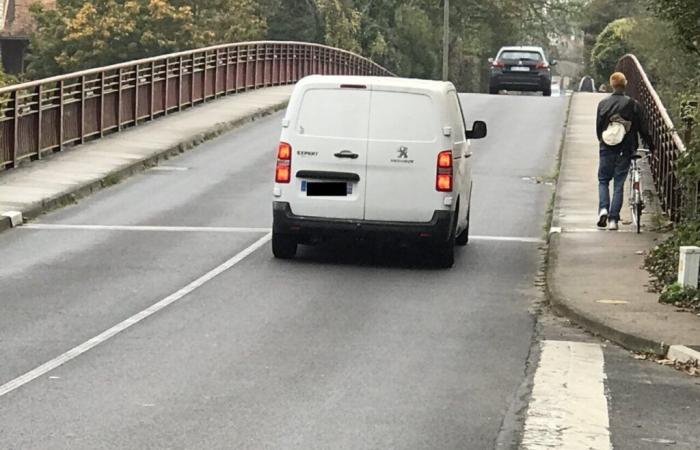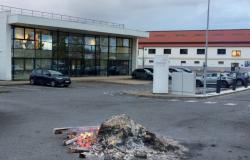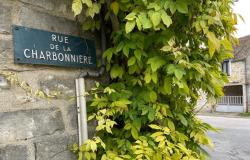Par
Editorial The Republic of Seine and Marne
Published on
Nov. 4 2024 at 5:50 p.m
See my news
Follow The Republic of Seine et Marne
As part of the Bike Plan aiming to promote non-motorized travel, the town of Chartrettes, in Seine-et-Marne, is focusing on a nerve center of its circulation : the bridge which leads to Bois-le-Roi. This passage, essential for the mobility of residents, is used daily by thousands of vehiclesas well as by pedestrians and cyclistswho have been demonstrating their concerns concerning security of this route.
A dense flow
In order to better understand the issues related to this bridge, the Chartrettes town hall sponsored a flow study over a full week, carried out in June 2024. The results showed traffic density significant: approximately 8,845 vehicles cross the bridge every day, including carsof the motos and heavy goods vehicles. But the bridge is also used by 627 soft mobility users: 320 pedestrians and 307 cyclists. These vulnerable users represent around 7% of all daily flows, a figure which underlines their importance in the road space.
This density of flows highlights an infrastructure that is poorly suited to non-motorized travel. Due to the narrowness of the space dedicated to soft mobilitya significant proportion of cyclists (35%) choose to ride on sidewalks, compromising the safety of pedestrians.
“The bridge presents significant risks for pedestrians and cyclists. It is essential to rethink this space to meet the needs of all, underlines Pascal Gros, mayor of Chartrettes. By planning it properly, we could encourage more people to opt for alternative, greener and safer means of transport.”
Faced with this situation, a letter was sent to Department of Seine-et-Marne, owner of the bridge, accompanied by the results of the study.
Development prospects
The municipality of Chartrettes hopes that this departmental file will be taken into account in future planning policies. Furthermore, the Bicycle Plan for the Pays de Fontainebleau agglomeration represents an opportunity to promote soft mobility, and the Chartrettes bridge is a strategic point in this approach. Specific arrangements, such asa lane reserved for cyclists or a more marked separation between the different categories of users, could meet the needs of each, while reducing the risk of accidents.
For the mayor, securing this section is essential to encourage residents to use alternative means of transport.
“We must rethink our infrastructure to promote carbon-free travel and guarantee the safety of all users. If appropriate measures are put in place, the number of pedestrians and cyclists will inevitably increase, and we will be able to reduce our environmental impact,” he hopes.
Follow all the news from your favorite cities and media by subscribing to Mon Actu.






